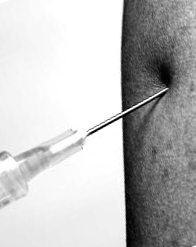Vaccines reduce long risk
 COVID vaccination before infection has been linked to reduced risk of ‘Long COVID’.
COVID vaccination before infection has been linked to reduced risk of ‘Long COVID’.
New research, based on data from over half a million Swedish adults, reveals that unvaccinated people were nearly four times more likely to be diagnosed with long COVID than those who received the vaccine before their initial infection.
The study, conducted by the SCIFI-PEARL project, followed 589,722 adults aged 18 and over, with a first COVID-19 infection registered between December 27, 2020, and February 9, 2022.
Individuals were tracked until the diagnosis of post-COVID-19 condition, vaccination, reinfection, death, emigration, or the end of follow-up on November 30, 2022.
The researchers accounted for various factors, including age, sex, existing conditions, education level, employment status, and virus variant at the time of infection.
The findings indicate that those who had received at least one COVID-19 vaccine dose before infection were 58 per cent less likely to be diagnosed with post-COVID-19 condition than unvaccinated individuals.
Furthermore, the study demonstrates a dose-response effect, with each successive vaccine dose before infection contributing to increased effectiveness.
For instance, the first dose reduced the risk of post-COVID-19 condition by 21 per cent, two doses by 59 per cent, and three or more doses by 73 per cent.
While acknowledging the observational nature of the study and certain limitations, such as limited data on post-COVID-19 condition symptoms, the researchers emphasise the robustness of the results.
The study underscores the importance of complete primary vaccination coverage against COVID-19, not only for reducing the risk of severe acute infection but also for lessening the burden of post-COVID-19 condition in the population.
In a linked editorial, researchers highlight the association between the immune system and the development of post-viral conditions.
They call for continued investigation into the long-term residual symptoms of COVID-19 and other viral illnesses, noting the need for accurate recording of recovery and continued illness after infection.
The researchers say that such estimates are fundamental for securing funding for future research and increased investment in specialist clinical services for the treatment and rehabilitation of patients with post-viral conditions.








 Print
Print